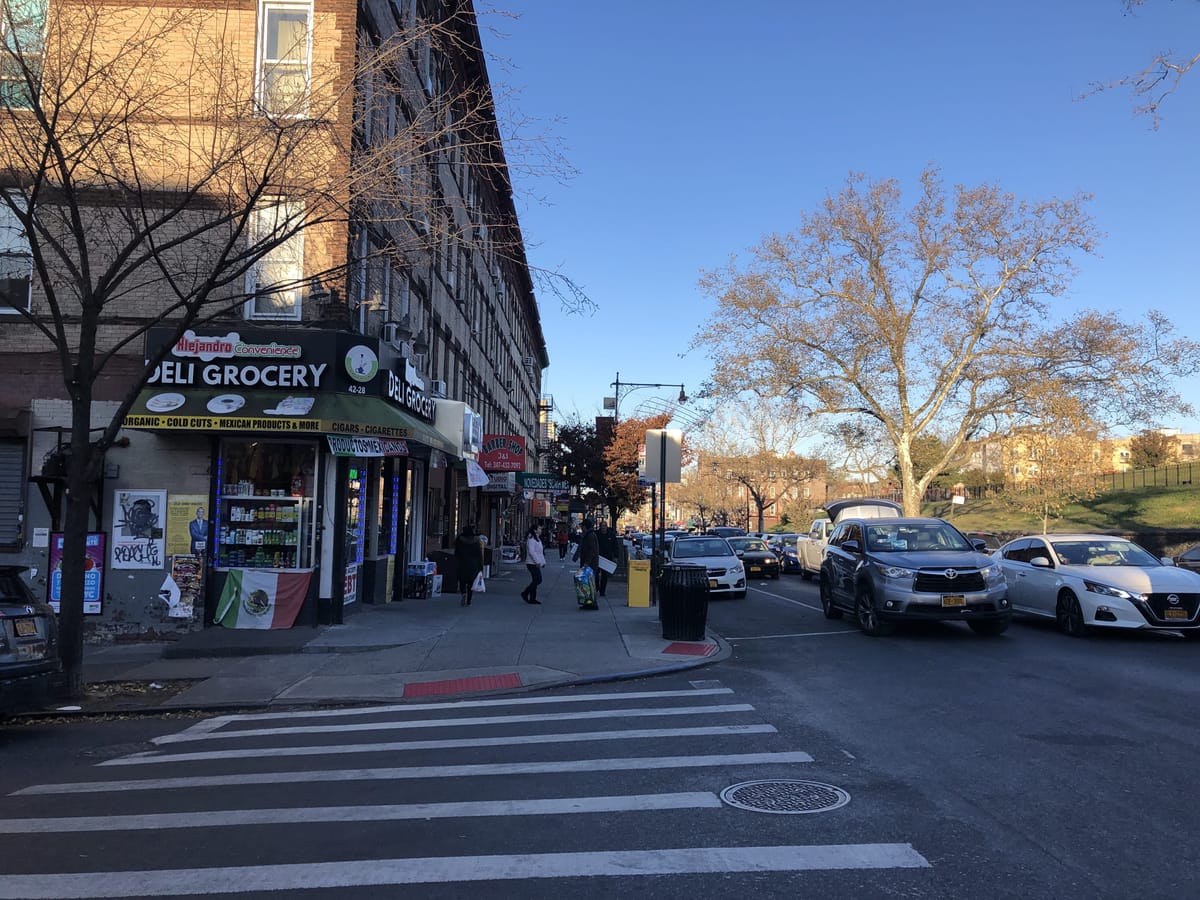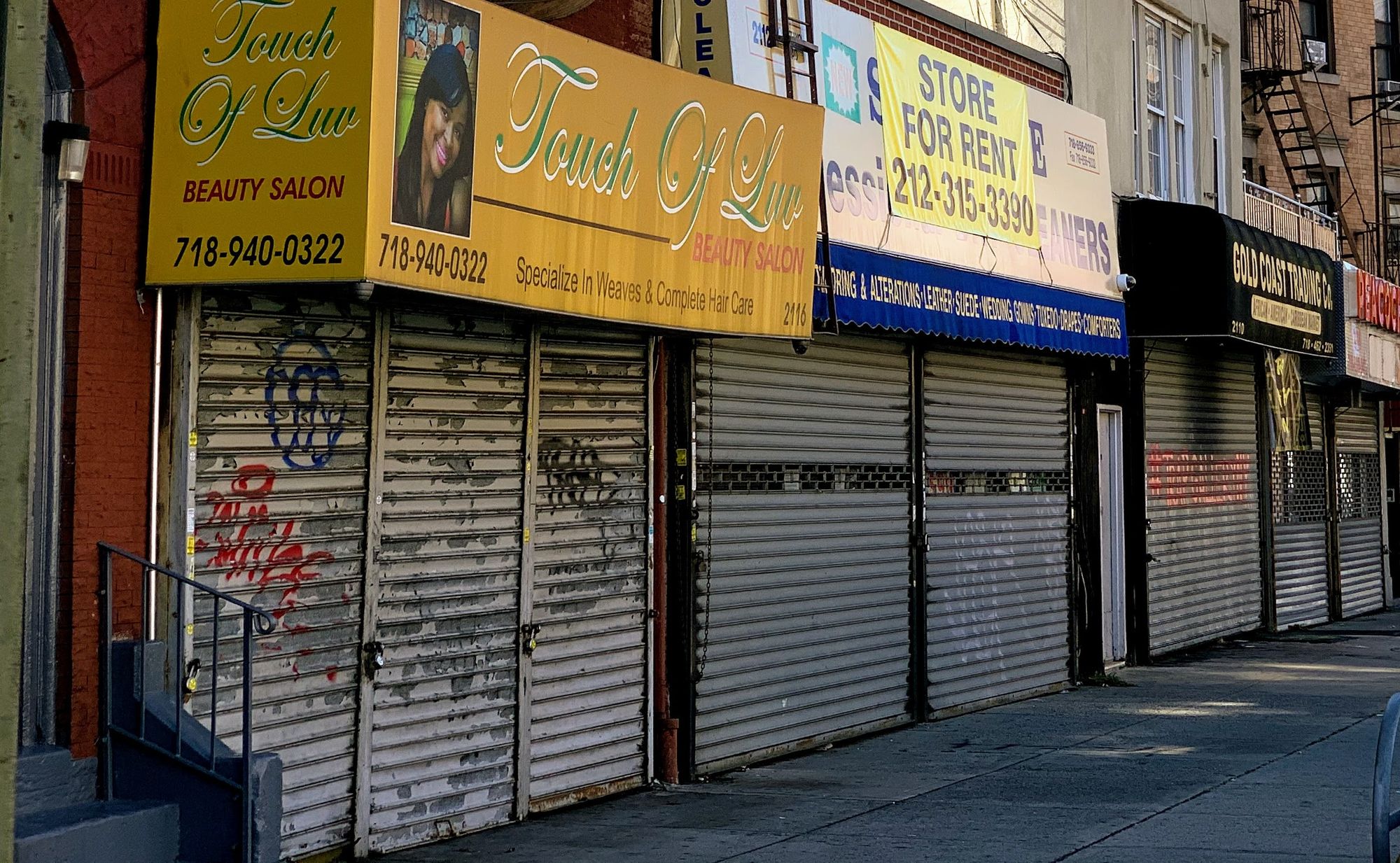PPP Fails To Help Brooklyn Businesses, Brooklyn Chamber of Commerce Finds


The Brooklyn Chamber of Commerce released the results of a survey today detailing the widespread failure of the Paycheck Protection Program (PPP), meant to be a lifeline for small businesses during this pandemic. According to their results, 84% of the Brooklyn businesses surveyed had not received the funding they had applied for as of the 17th of April, and that number was 90% among the Minority and Women-Owned Business Enterprises (M/WBEs).
The President and CEO of the Brooklyn Chamber of Commerce, Randy Peers, said that this failure was there from the beginning.
“From our perspective it was an underfunded program from the start. There was a lot of confusion in terms of the rollout, especially in information that was communicated to the banks. Banks were kind of left to their own devices in order to determine the underwriting standards, “ Peers said. “Many of them focused on businesses that had existing business accounts and, within that, even had existing loans or lines of credit, so a lot of small businesses were shut out.”
The survey also showed that 60% of businesses reported the SBA (Small Business Administration) was “less than helpful” throughout the process.
Peers says that the Chamber is hoping for a more extensive funding plan to come out of Washington this week, but says that many of the larger changes likely won’t happen until Congress reconvenes in May.
“This week we hope to hear from Washington that there’s going to be additional stimulus money put into these programs. It was my hope that there would be some changes to the program so that it would be more accessible to small businesses across the board. I’m not confident that that’s going to happen in this round, but for businesses that did apply and have not heard yet, at least it’s a good sign that they are putting more money into the program, because that means that they’re already in the cue,” Peers said.
Despite the big promises made by the PPP, it’s already been marred by frustration and scandal in the press, with Shake Shack receiving a ten million dollar loan, only to return it after public backlash.
“I think the unfortunate takeaway [from the survey] is that these programs were launched with much fanfare, and they fell quite flat. They’ve created a lot of hope and expectations and now they’ve simply been left with frustration. That, to me, in addition to all that these poor entrepreneurs and business owners are struggling with, in terms of their own personal health, their family’s health, and their business’ health, that’s just another big letdown. The Chamber is working hard to get as many businesses through this as possible, but right now we really do need more scheduled resources on the table, and we need them deployed in a way that works for the small business community,” Peers said.
The Chamber of Commerce detailed a “bold” plan to help with this issue, titled “The Blueprint to Save Small Businesses”. The plan includes a clause to fix the PPP so that the loan would be forgivable if “businesses hire back staff at a minimum of six months after they fully reopen,” the release stated, as well as expanding the funding for a longer period of time and allowing a larger portion to be able to go towards rent. They also propose covering COVID under business interruption insurance, converting sales tax to cash grants, and instituting a government backstop on rent and mortgages.
“I think specifically for the PPP [part of the plan], which is the one we highlight up front, I don’t think those changes are going to happen this week in this new infusion of capital. Unfortunately, I don’t think that that’s the case. But, we’re going to be lobbying pretty hard for when Congress comes back in May to ensure that they make the changes to the program in the next round of stimulus,” Peers said.
The other findings of the survey included reports that 44% of businesses were unable to pay April’s rent, with only 15% of landlords reducing or pausing rent payments as well.
“The federal programs focus a lot on payroll, and in some cases places have already laid off employees so they’ve shed payroll. Rent, if you think about it, is a small business’ largest fixed cost, and if you’re a business that’s been forced to shut down, your rent has not been suspended, so I think our data shows a very big disconnect between commercial landlords and commercial tenants,” Peers said.
For Peers, the unprecedented nature of this crisis makes things very difficult to predict— both for agencies and business owners.
“I was here through 9/11, I was here through Sandy, through the great recession. Here’s the difference. Those were point-in-time disasters and when they were over, we started rebuilding. We still don’t know when this is going to end. Businesses don’t know when they are going to be able to reopen or under what conditions,” Peers said. “They don’t want to take on more debt, that much they’ve said clearly, in almost every business that we talked to, but they also don’t know when they’re going to restart. So, to take on any program without having that understanding of when they could open back up is really concerning to them.”
Those who want to support their small businesses should continue to patronize them, now and once this crisis has abated, Peers says.
“Be out there, be visible, support them, talk to them, shop there. These are the things that you can do to really help them through. Give them that moral support, let them know they are not alone. At the end of the day, every business cares about its customers and it’s the customers that are going to lose in the end if we don’t get these businesses back online,” Peers said.




